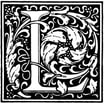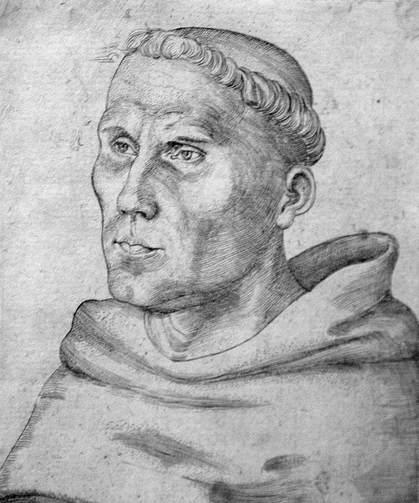Martin Luther
The Monk of Erfurt
It was at this time, in 1506, in which he began his studies of the Old Testament Scriptures in the original tongue. He used a Hebrew Lexicon which Johann Reuchlin had just published, and he most likely gained his help from a friar of the convent, named John Lange. But the roots of self-righteousness, namely gaining righteousness by works, was still buried deep within him. He sought to crucify the flesh, a Biblical Truth of the Word, but his motivation was off base. He debased himself by severe fastings and macerations, the whipping and scourging of the body. Luther had yet to comprehend the Grace of our Lord. He knew the corruption of the human will, but he did not know the freedom of grace and the forgiveness of sins that Jesus had made available to him. He would remain four days at a time without eating or drinking in order to, as Luther thought, “become holy and purchase heaven”. He said, in a letter to Duke George of Saxony at a later time, “truly I was a pious monk, and followed the rules of my order more strictly than I can tell. If ever monk had got to heaven by monkery, I had been that monk. In this all the monks of my acquaintance will bear me witness. Had the thing continued much longer I had become a martyr unto death, through vigils, prayer, reading, and other labors.” As time progressed in the convent at Erfurt, he became more aware of the despair and corruption of the human soul in opposition to the goodness of God. This threw him deeper into despair. He would consult the other monks and theologians, but their advice was to do works in order to satisfy the Divine Justice. “But how”, thought Luther, “is it possible to satisfy God with my own works, when my very works are polluted in their principle? I felt myself to be a great sinner before God, and deemed it impossible to appease Him by my merits.” Luther was right, there is no way to appease God by our own works and gain eternal salvation within ourselves. How great a condemnation he had to have felt at this time, not knowing the precious Truth and Grace of Jesus Christ. Being overwhelmed with sadness, the poor monk would lock himself in his cell for days at a time, not allowing anyone to enter.

